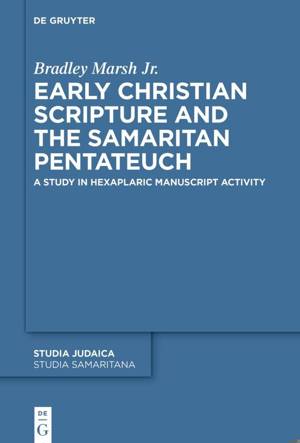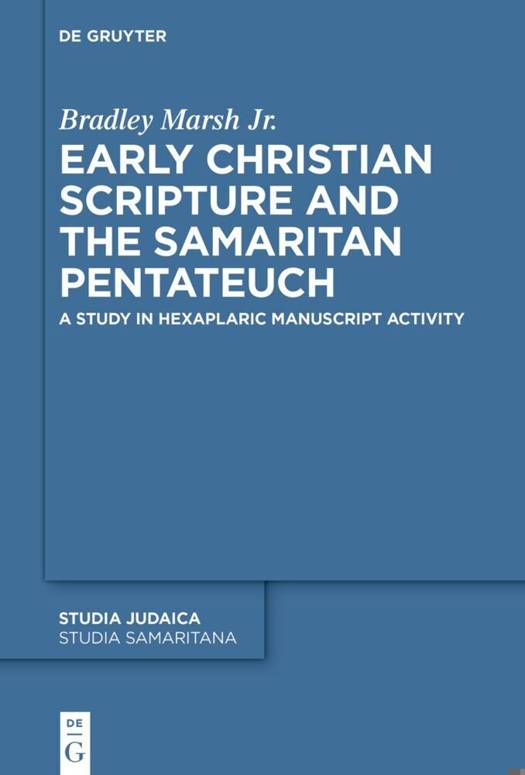
- Retrait gratuit dans votre magasin Club
- 7.000.000 titres dans notre catalogue
- Payer en toute sécurité
- Toujours un magasin près de chez vous
- Retrait gratuit dans votre magasin Club
- 7.000.0000 titres dans notre catalogue
- Payer en toute sécurité
- Toujours un magasin près de chez vous
Early Christian Scripture and the Samaritan Pentateuch
A Study in Hexaplaric Manuscript Activity
Bradley Marsh Jr
212,95 €
+ 425 points
Description
Early Christian Scripture and the Samaritan Pentateuch is a study exploring Christian interaction with the Samaritan Pentateuch as evinced by hexaplaric sources. The manuscript evidence for the Samaritan Pentateuch in Greek attests two distinct, textually unrelated groups of readings: a σαμ-type (i.e., the Samareitikon) and a μονον-type. Only the latter, the subject of the present study, is hexaplarically derived and predates, considerably, any evidence for the former. The extant hexaplaric colophons and scholia found in the books of Exodus, Numbers, and Deuteronomy reveal that at some point the Caesarean library acquired a copy of the Samaritan Hebrew Pentateuch. This copy was then collated, quantitatively, against the hexaplaric Septuagint. Since the Samaritan text is often longer than the Septuagint due to a number of "expansions", taken from various pre-existing passages of the Pentateuch, the Caesarean critics "translated" these expansions into Greek with the aid of the Septuagint. No evidence was found that the so-called Samareitikon (i.e., Samaritans' own Greek translation) was either known to or used by the Caesarean critic. These "translations" bear no trace of Samaritan exegesis. It is hypothesized here, that the collation and "translation" was made possible through the use of the multi-columned Hexapla as a kind of analytical lexicon. Taking the results of this effort, the responsible party added these data to the margins of the Caesarean Septuagint edition. These passages were later translated into Syriac and were even adopted by some later Christian scribes as legitimate biblical readings. It is posited that Eusebius--not Origen, as has been commonly supposed--was the one responsible for this work. The study explores these data diachronically from inception to integration. The findings and analysis are relevant for the fields of biblical studies, Samaritan studies, and the study of Bible production and the praxis of textual research in early Christianity.
Spécifications
Parties prenantes
- Auteur(s) :
- Editeur:
Contenu
- Nombre de pages :
- 817
- Langue:
- Anglais
- Collection :
- Tome:
- n° 12
Caractéristiques
- EAN:
- 9783110760699
- Date de parution :
- 31-12-23
- Format:
- Livre relié
- Format numérique:
- Genaaid
- Dimensions :
- 155 mm x 230 mm
- Poids :
- 1274 g

Les avis
Nous publions uniquement les avis qui respectent les conditions requises. Consultez nos conditions pour les avis.






